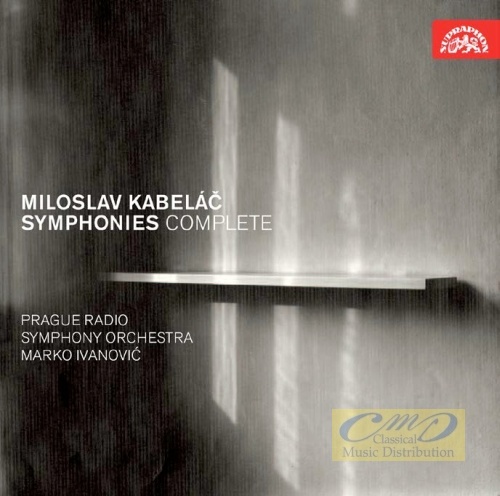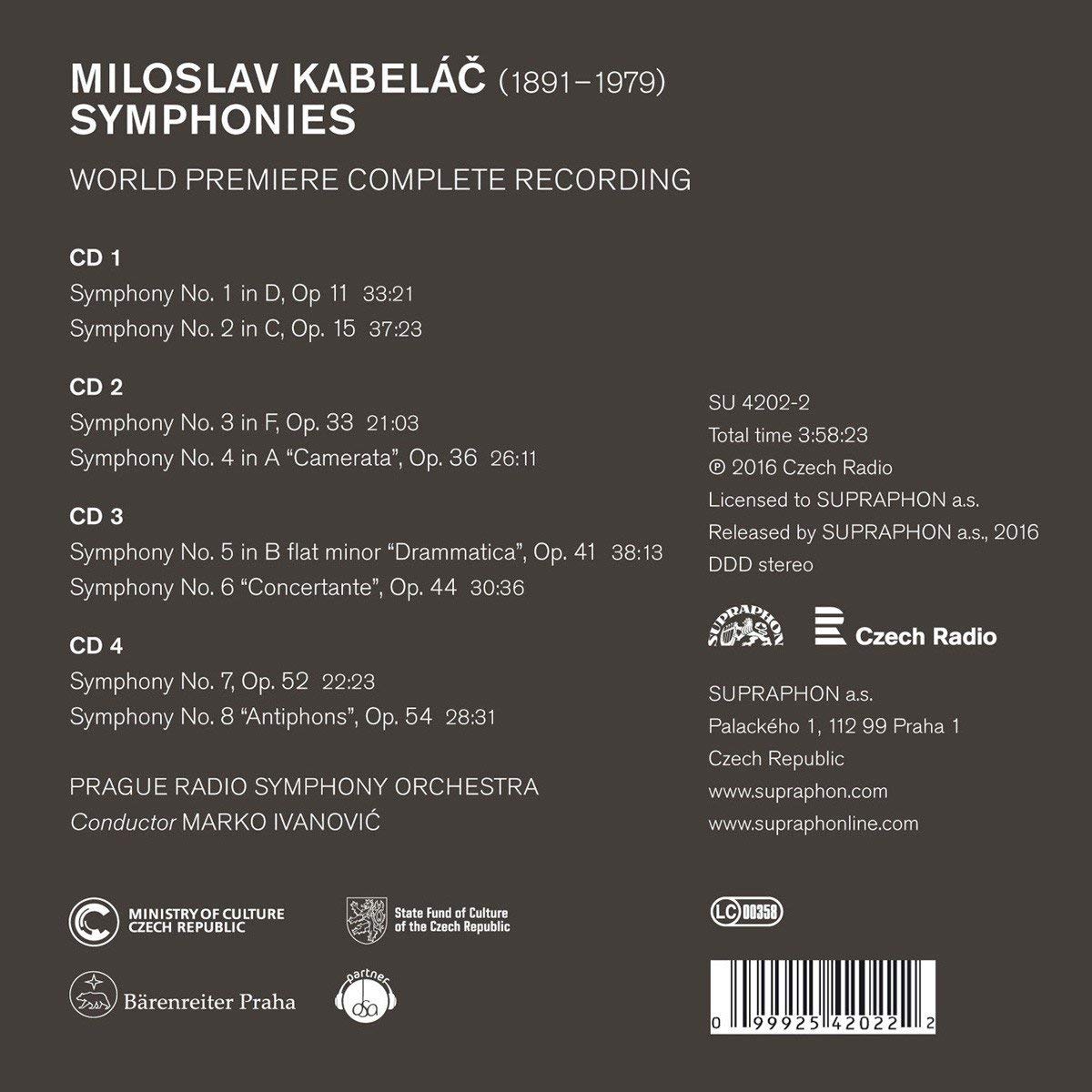
kompozytor
Kabelac, Miloslav
tytuł
Kabelac: Complete Symphonies
wykonawcy
Prague Radio Symphony Orchestra;
Ivanovic, Marko
Ivanovic, Marko
nr katalogowy
SU 4202-2
opis
Miloslav Kabelá completed the first of his eight symphonies in Prague in early 1942, just a few months before Bohuslav Martin, in the USA, would plunge into his Symphony No. 1, for Serge Koussevitzky and the Boston Symphony Orchestra. Kabelá was afflicted badly by the consequences of the Nazi occupation: owing to his refusal to divorce his Jewish wife, he lost his job at the radio, his music was banned, and his life was in permanent danger. This atmosphere of gloom is duly reflected in his Symphony No. 1. The euphoria following the end of World War II was very short---lived, as two and a half years later a similarly oppressive dictatorship, this time Communist, commenced. Kabelá composed each of his symphonies for different instrumentation, repeatedly drawing inspiration from Biblical themes. Most of the pieces were premiered by the Czech Philharmonic, conducted by Karel Anerl, an enthusiastic champion of Kabelás music worldwide. The final symphony, Antiphones, was written specially for a concert at the Saint Pauls Church in Strasbourg, and the superlative ensemble Les Percussions de Strasbourg, for whom Kabelá created the famous cycle Eight Inventions, yet its premiere in June 1971 within a Hommage a Miloslav Kabelá concert featuring his music exclusively, took place without the composers presence, as he had not received a permit to travel to the West ... Alongside Bohuslav Martin, Miloslav Kabelá was unquestionably the greatest Czech symphonist of the 20th century. The first complete recording of his symphonies, made by the Prague Radio Symphony Orchestra, conducted by Marko Ivanovi, affords the listener the opportunity to revel in the sheer depth of Kabelás symphonic oeuvre. The first complete recording of Miloslav Kabelás symphonies. A gateway to new musical landscapes.
nośnik
CD
x 4
gatunek
Muzyka klasyczna
producent
Supraphon
data wydania
27-09-2016
EAN / kod kreskowy
99925420222
Produkt nagrodzony:
Diapason: 5 diapasons (2016)

(Produkt nie został jeszcze oceniony)
cena 159,00 zł
lubProdukt na zamówienie
Wysyłka ustalana indywidualnie.
Darmowa wysyłka dla zamówień powyżej 300 zł!
Darmowy kurier dla zamówień powyżej 500 zł!
sprawdź koszty wysyłki



































